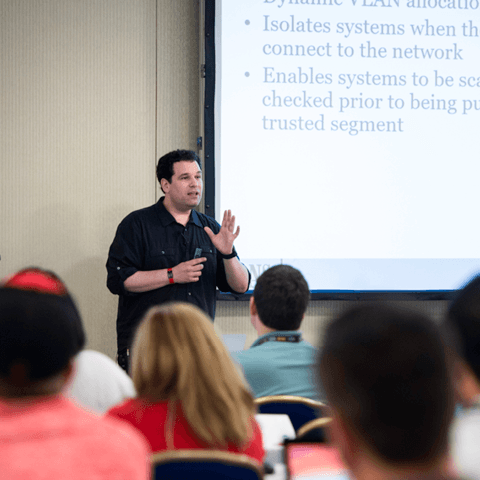SEC595: Applied Data Science and AI/Machine Learning for Cybersecurity Professionals


Experience SANS training through course previews.
Learn MoreLet us help.
Contact usBecome a member for instant access to our free resources.
Sign UpWe're here to help.
Contact Us
Apply your credits to renew your certifications
Train at your own pace from wherever you are
Course material is geared for cyber security professionals with hands-on experience
Apply what you learn with hands-on exercises and labs
Secure the full GenAI lifecycle, mastering hands-on strategies to defend LLMs, agents, and RAG-powered apps from development to deployment.
SEC545 explores GenAI security, from core concepts like LLMs and RAG to real-world risks like prompt injection and supply chain threats. Students learn to build, secure, and deploy GenAI apps using best practices for tools like LangChain, agents, and cloud platforms such as AWS Bedrock.
An expanded SEC545 (5 Day) is now available for registration for those seeking deeper technical coverage and an in-person or live online learning experience.


Ahmed is the founder of Cyberdojo with 17+ years in cloud, network, and application security. He specializes in GenAI security and has led projects in cloud security, application security, and incident response.
Read more about Ahmed AbugharbiaExplore the course syllabus below to view the full range of topics covered in SEC545S: (3-Day) GenAI and LLM Application Security.
The course starts with GenAI fundamentals, covering key concepts like Large Language Models (LLMs), embeddings, and Retrieval-Augmented Generation (RAG). Students will explore security risks unique to GenAI, including prompt injection, malicious models, and third-party supply chain vulnerabilities.
Building on section 1, students explore core components for GenAI apps, like vector databases, LangChain, AI agents, and MCP. Section 2 also covers deployment strategies, comparing cloud and on-premises setups with a focus on the security risks unique to each.
In the third and final section, students focus on MLSecOps—the integration of security operations into the machine learning lifecycle—and conclude by learning advanced threat modeling techniques aimed at identifying, assessing, and comprehensively mitigating risks.
Cloud Security Engineers integrate advanced security measures into cloud and cloud-native environments, maximize security automation within DevOps workflows, and proactively mitigate threats to safeguard modern cloud infrastructures.
Explore learning pathA Cloud Security Analyst monitors and analyzes activity across cloud environments, proactively detects and assesses threats, and implements preventive controls and targeted defenses to protect critical business systems and data.
Explore learning pathResponsible for ensuring that security requirements are adequately addressed in all aspects of enterprise architecture, including reference models, segment and solution architectures, and the resulting systems that protect and support organizational mission and business processes.
Explore learning pathResponsible for conducting software and systems engineering and software systems research to develop new capabilities with fully integrated cybersecurity. Conducts comprehensive technology research to evaluate potential vulnerabilities in cyberspace systems.
Explore learning pathResponsible for planning, implementing, and operating network services and systems, including hardware and virtual environments.
Explore learning pathResponsible for analyzing the security of new or existing computer applications, software, or specialized utility programs and delivering actionable results.
Explore learning pathResponsible for developing and maintaining business, systems, and information processes to support enterprise mission needs. Develops technology rules and requirements that describe baseline and target architectures.
Explore learning pathResponsible for the secure design, development, and testing of systems and the evaluation of system security throughout the systems development life cycle.
Explore learning pathWhen purchasing a live, instructor-led course, add 4 months of online access. View price in the info icons below.
Add 6 months of hands-on skills practice. Add to your cart when purchasing your course.

Get feedback from the world’s best cybersecurity experts and instructors

Choose how you want to learn - online, on demand, or at our live in-person training events

Get access to our range of industry-leading courses and resources